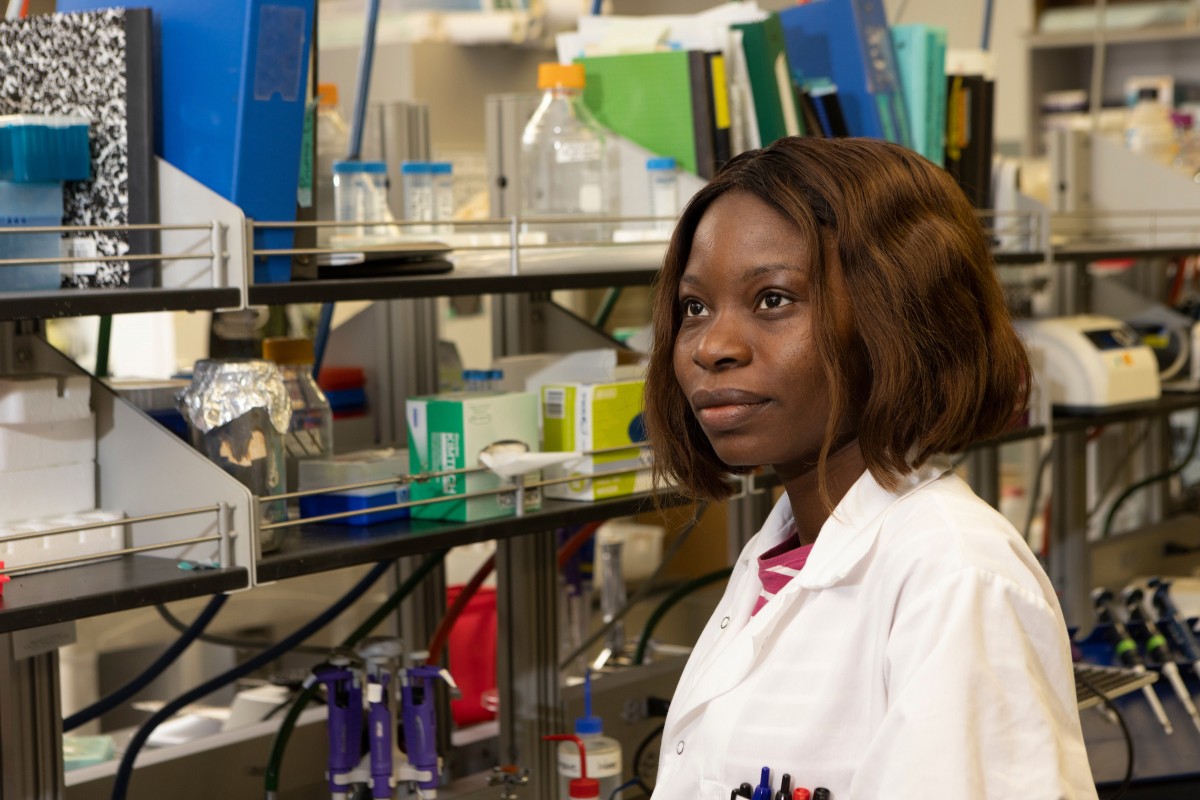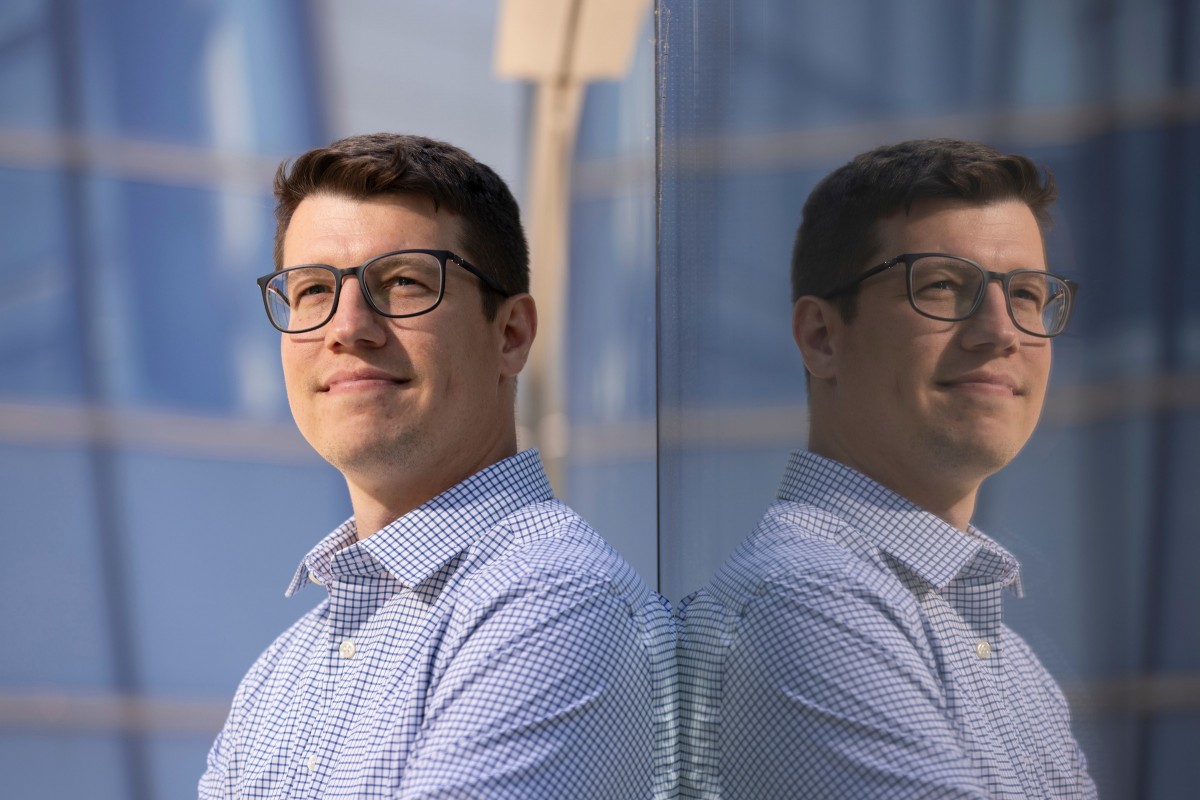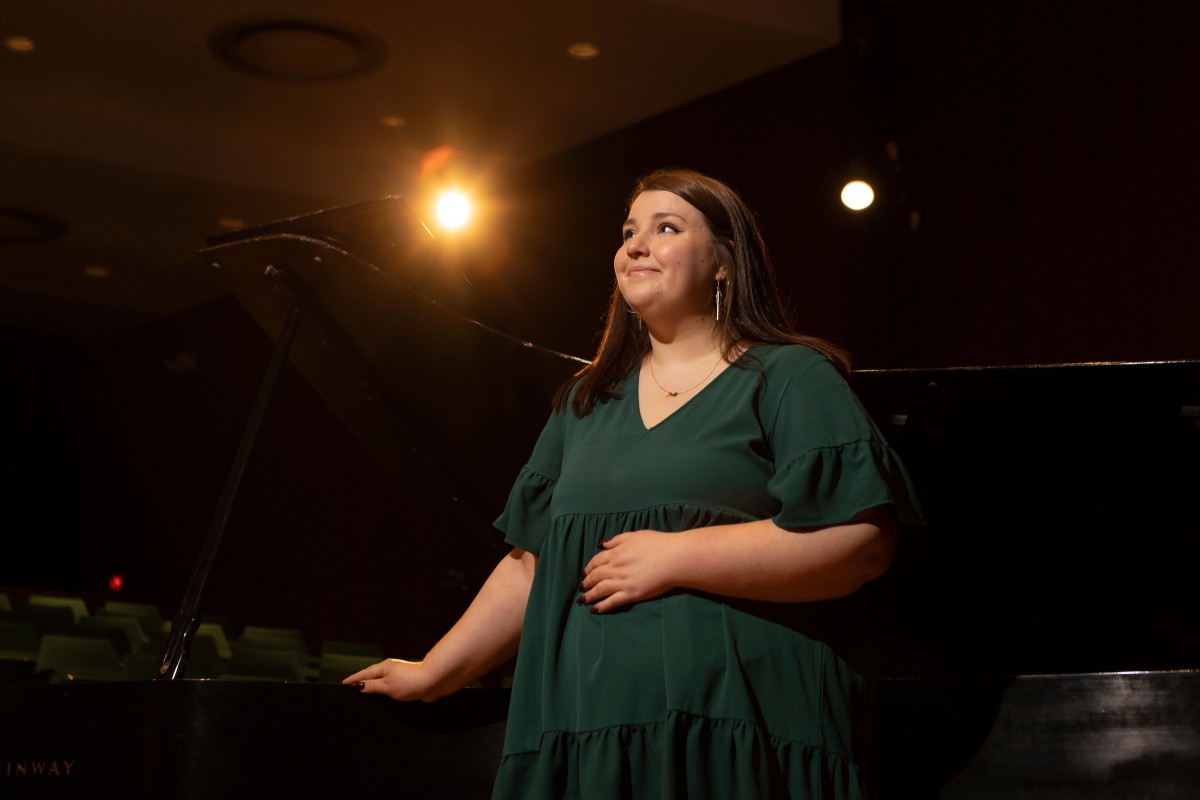Investing in the future of the liberal arts
Lieberman fund supports graduate student projects in the arts and sciences

For the first time, Harpur College of Arts and Sciences has awarded graduate- student support from the new Harpur Dean’s Graduate Investment Initiative, made possible thanks to Mitchell J. Lieberman ’80 and Susan G. Lieberman.
The couple established the fund to enhance graduate education in Harpur at the student and programmatic levels. The support empowers Harpur to focus on immediate initiatives and those that will shape the future of the college.
Dozens of graduate students received essential funding this past spring to advance their work. Fourteen of them have projects dedicated to the arts and received approximately $11,000 in total funding; other projects are focused on activities outside the arts, with 24 students each receiving $1,000. Here are just some of the recipients:
Allen Loomis
The primary documents needed to advance pathbreaking research can sometimes be a world away.
But Loomis, a doctoral student in English, was able to embark on five days of research in the United Kingdom in August to dig into the history of English window glass so he can complete his dissertation, “Transparent Window Glass and the Theatricality of Dwelling in Early Modern England.”
Elizabethan court records, probate lists, letters, glass fragments and orders for window glass and repairs are just some of the items he pored over in museums, archives and libraries. Most of the materials can be viewed only in person.
Such documents are crucial for understanding the decline and resurgence of the English glass industry and the transparent window glass introduced in England during the mid-16th century, he says.
“I argue that the introduction of transparent window glass sparked a ‘glass mania’ that altered how Elizabethans perceived themselves and their surroundings,” he says. “Ultimately, my research aims to accomplish several overarching goals: encourage people to pause and take note of ubiquitous materials around us, consider how material innovations change our experiences in the world and prompt readers to not just peer through the glass but also look upon the glass.”
Mercy Olorunshola
Olorunshola, an international student from Nigeria, received crucial funding to investigate the role of biofilm bacteria in the progression of atherosclerosis, a chronic disease that leads to extreme narrowing of arteries, reduced blood flow and increased risk of heart attack and stroke.
“A research project of this scale demands more than just intellectual commitment and dedication; it also requires substantial financial support to effectively convert innovative ideas into verifiable scientific outcomes,” she says. “Without this funding, I won’t be able to complete important experiments that will advance me in completing my PhD.”
Enzyme assay kits are just some of the necessary supplies she was able to buy to carry out her research.
“I aim to investigate if the bacterial biofilm of interest has the potential to produce and release the degradative enzymes that can further weaken cardiovascular tissues,” she says. “The findings will contribute immensely toward finding a long-lasting solution to the world’s leading causes of death: heart attack and stroke.”
What fuels her work and pursuit of a doctorate in biological sciences? Olorunshola says it’s her passion for medical research, advancing knowledge about microorganisms and their impact on human health, and her “drive to contribute to a better understanding of our world.”
Cali Jacobs
Jacobs, a master’s student in vocal performance, was finally able to say yes to attending the two-week Midsummer Music Dream Festival in Quebec last summer.
She was one of 15 singers selected into the Vocal Studio Artist Program of the festival, from July 24 to Aug. 7; the experience blended high-caliber mentoring with extensive performance opportunities and a daily program that included vocal technique classes and coaching, private lessons, workshops and more.
“I was offered a place at the festival [the previous summer], but I had to turn it down because I couldn’t afford to go,” she says. “I am very grateful to have this opportunity!”
With support for expenses, Jacobs gained more vocal training, made recordings to prepare for a busy audition season this fall and established vital connections in the opera world.
Her goal? A performance contract or acceptance into an artist diploma (AD) program to continue her vocal growth, she says.
“There is nothing like being on stage,” she says. “I could not live my life without it.”


